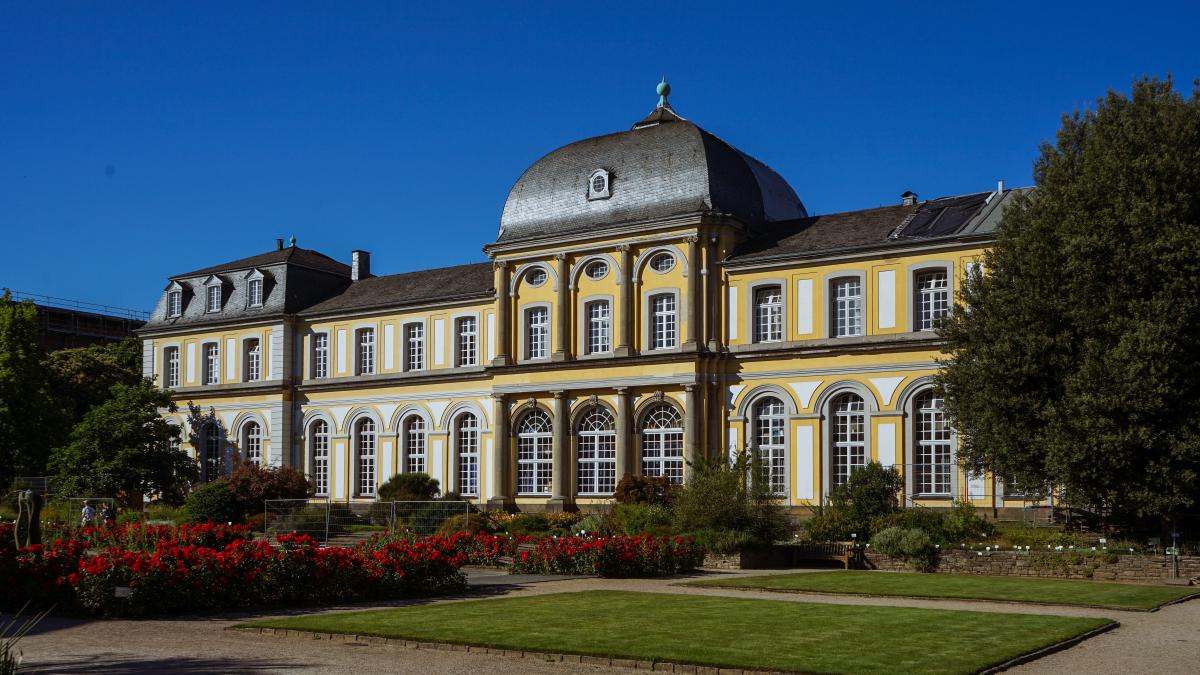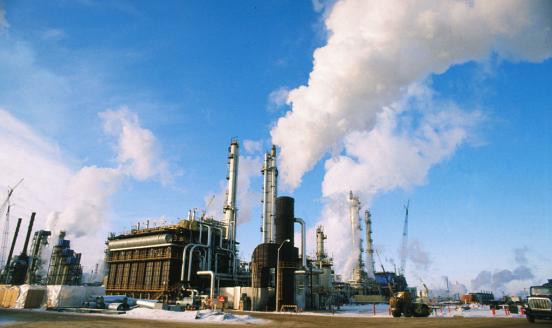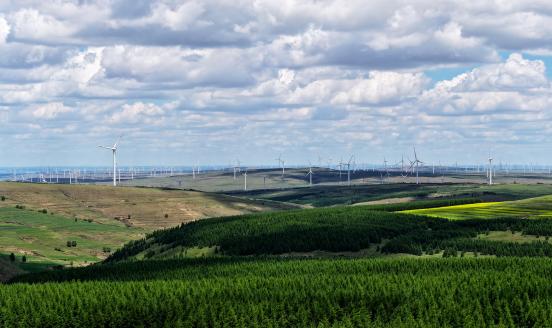- / Home
- / Publications
Instruments of a strategic foreign economic policy
Study for the German Federal Foreign Office produced by Bruegel, the Kiel Institute for the World Economy and DIW Berlin.
- Publishing date
- 12 November 2021

The Kiel Institute for the World Economy, DIW Berlin and Bruegel thank the German Federal Foreign
Office for funding this study. The views expressed are those of the authors.
The separation of security and economic objectives in foreign policy, which was often sought in international political issues in the past, has outlived its usefulness. The transition to a more power-based order can be felt around the world. International economic instruments and agreements are increasingly used to achieve various foreign policy goals. These are simultaneously used to promote own political interests, sometimes to the detriment of partner countries. This "weaponised interdependence" makes it necessary for Germany and the European Union to assess their vulnerabilities and to design their own defensive and offensive strategies.
Bruegel lead by the Kiel Institute for the World Economy, together with DIW Berlin, has produced a study on behalf of the Federal Foreign Office that addresses the objectives, instruments, and trade-offs of a strategic foreign economic policy and describes how to deal with them in the context of German and European policy making.
About the authors
-
Georg Zachmann
Georg Zachmann is a Senior Fellow at Bruegel, where he has worked since 2009 on energy and climate policy. His work focuses on regional and distributional impacts of decarbonisation, the analysis and design of carbon, gas and electricity markets, and EU energy and climate policies. Previously, he worked at the German Ministry of Finance, the German Institute for Economic Research in Berlin, the energy think tank LARSEN in Paris, and the policy consultancy Berlin Economics.
-
Guntram B. Wolff
Guntram Wolff is a Senior fellow at Bruegel. He is also a Professor of Public Policy and Economics at the Willy Brandt School of Public Policy. From 2022-2024, he was the Director and CEO of the German Council on Foreign Relations (DGAP) and from 2013-22 the director of Bruegel. Over his career, he has contributed to research on European political economy, climate policy, geoeconomics, macroeconomics and foreign affairs. His work was published in academic journals such as Nature, Science, Research Policy, Energy Policy, Climate Policy, Journal of European Public Policy, Journal of Banking and Finance. His co-authored book “The macroeconomics of decarbonization” is published in Cambridge University Press.
An experienced public adviser, he has been testifying twice a year since 2013 to the informal European finance ministers’ and central bank governors’ ECOFIN Council meeting on a large variety of topics. He also regularly testifies to the European Parliament, the Bundestag and speaks to corporate boards. In 2020, Business Insider ranked him one of the 28 most influential “power players” in Europe. From 2012-16, he was a member of the French prime minister’s Conseil d’Analyse Economique. In 2018, then IMF managing director Christine Lagarde appointed him to the external advisory group on surveillance to review the Fund’s priorities. In 2021, he was appointed member and co-director to the G20 High level independent panel on pandemic prevention, preparedness and response under the co-chairs Tharman Shanmugaratnam, Lawrence H. Summers and Ngozi Okonjo-Iweala. From 2013-22, he was an advisor to the Mastercard Centre for Inclusive Growth. He is a member of the Bulgarian Council of Economic Analysis, the European Council on Foreign Affairs and advisory board of Elcano.
Guntram joined Bruegel from the European Commission, where he worked on the macroeconomics of the euro area and the reform of euro area governance. Prior to joining the Commission, he worked in the research department at the Bundesbank, which he joined after completing his PhD in economics at the University of Bonn. He also worked as an external adviser to the International Monetary Fund. He is fluent in German, English, and French. His work is regularly published and cited in leading media.
-
Marcel Fratzscher
Marcel Fratzscher is President of DIW Berlin, one of the leading economic research institutes and think tanks in Europe, and Professor of Macroeconomics and Finance at Humboldt-University Berlin
-
Kerstin Bernoth
Kerstin Bernoth, is Professor of Economics at the Hertie School of Governance and Scientific Advisor to the board at the German economic think tank DIW Berlin. She holds a Ph.D. from the University of Bonn and worked from 2004 to 2009 as a researcher in the economic policy and research department of De Nederlandsche Bank, the Central Bank of the Netherlands. Her research interests include empirical finance, monetary and fiscal policy and financial stability. Prof. Bernoth has published several articles in highly-ranked international journals. Her recent publications include the Journal of Banking and Finance (with Andreas Pick, 2011) and the Journal of International Money and Finance (with Jürgen von Hagen and Ludger Schuknecht, 2012).
-
Gabriel Felbermayr
Gabriel Felbermayr became President of the Kiel Institute for the World Economy in March 2019. He concurrently holds a chair in Economics and Economic Policy at Kiel University (CAU).
Prof. Gabriel Felbermayr, PhD, was born in June 1976 in Steyr, Austria.
After studying Economics and Trade at the University of Linz, he went to Florence, Italy, to pursue his doctoral studies. From 2004 to 2005, he was an Associate Consultant with McKinsey & Co. in Vienna. From 2005 to 2008, he was Assistant Professor at the University of Tübingen. From 2009 to 2010, he held a chair in International Economics at the University of Hohenheim (Stuttgart). From 2010 to 2019, he led the ifo Center for International Economics at the University of Munich, where he also served as a full professor in International Economics.
Gabriel Felbermayr holds various roles and positions. The most important are: member of the Scientific Advisory Board of the German Federal Ministry of Economics and Energy; Associate Editor, European Economic Review; Associate Editor, Journal of the European Economic Association.
His research and advisory activities focus on questions of economic global governance, European economic integration, and German economic policy. He has published a large number of papers in international scientific journals, in policy briefs, and newspapers. His research has been recognized with various awards.
-
Niclas Poitiers
Niclas Poitiers, a German citizen, joined Bruegel as a research fellow in September 2019.
Niclas' research interests include international trade, international macroeconomics and the digital economy. He is working on topics on e-commerce in trade as well as European trade policy in global trade wars. Furthermore he is interested in topics on income inequality and welfare state policies.
He holds a Ph.D. in Economics from Universitat de Barcelona, a M.Sc. in economics from the Universität Bonn, and a B.Sc. from Universität Mannheim. During his Ph.D. he was a visiting scholar at Northwestern University.
Niclas is fluent in English, Spanish, and German.
-
Alexander Sandkamp
Alexander Sandkamp is assistant professor of economics, in particular quantitative trade at the University of Kiel.His research focuses on the application of gravity models to evaluate trade policy.
Together with Gabriel Felbermayr, he investigates the effects of anti-dumping duties on international trade. -
Mia Hoffmann
Mia worked at Bruegel as a Research Analyst until August 2022. She studied International Economics (BSc) at University of Tuebingen, including one semester at the Università di Torino, and holds a Master’s degree in Economics from Lund University.
Before joining Bruegel Mia worked in the international development sector. As a Bluebook Trainee she worked at the European Commission’s Directorate-General for International Cooperation and Development and previously interned at the German development bank DEG, working on credit analysis and restructuring.
Her previous research focused on the impact of migration on economic growth and analyzed the effects of childcare policy on household bargaining. Her current research interests involve issues related to trade, labor markets and inequality.
Mia is a German native speaker, is fluent in English and has good working knowledge in French and Italian.
-
Pauline Weil
Pauline worked at Bruegel as a Research Analyst until September 2022. She holds a bachelor in Political Science and a master’s degree in International Trade and Finance from Sciences Po Lille. She also studied an MSc in Political Economy of Europe at the London School of Economics.
Her research interests include monetary policy, sovereign debt sustainability, trade and the energy transition. Pauline’s two regions of expertise are Europe and Asia.
She wrote a master’s thesis on the European Stability and Growth Pact by focusing on Greece’s adoption of the euro and its government debt crisis. And her second master’s thesis questioned the political and economic sustainability of the Franc CFA currency in the West African Economic and Monetary Union (WAEMU) in the context of European integration.
Prior to Bruegel, Pauline was a Junior Economist for the credit insurer Coface where she provided country risk analysis on Europe, working from Paris, and then on Asia, from Hong Kong. She also pursued the Blue Book Traineeship at the European Commission, working for DG DEVCO in the Directorate for Asia.
Pauline is fluent in French and English and has a good command of Spanish.
-
Katrin Kamin
-
Malte Rieth
-
Jacqueline Dombrowski
-
Sebastian Horn
-
Karsten Neuhoff
- Keyword
- geopolitics eu governance climate change
- Country
- Germany
- Language
- English
Related content

The impact on the European Union of Ukraine’s potential future accession
This report evaluates the impact on the EU of a possible EU accession of Ukraine, focusing on economic consequences and institutional developments.

Four questions for Germany’s big hydrogen power plan
Germany’s hydrogen strategy will have ripples across Europe and should be discussed more widely

A new opening for Polish-German energy relations
The change of government in Poland and the Russian aggression in Ukraine provide an opportunity for a new opening for Polish-German energy relations.

European natural gas imports
This dataset aggregates daily data on European natural gas import flows and storage levels.